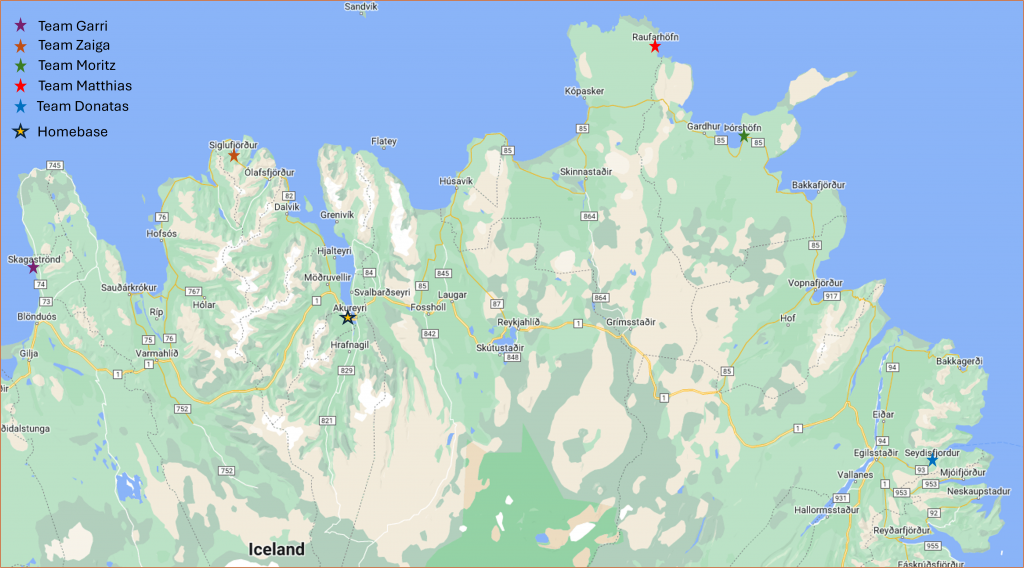Nord+ IP 2024 Iceland
The Nordplus Intensive Programme (IP) was conducted from 11.-25. of May in Iceland. Under the topic “Smart shrinking as a development approach for de-populating and remote coastal communities” it provided 31 students from 5 countries with the opportunity to study the challenges of, and find solutions for 5 shrinking municipalities in North and North-eastern Iceland (see map below). For 14 days, students participated in an interactive excursion traversing Northern and North-eastern Iceland, conducted group-based fieldwork in localities affected by de-population, met with administrations and entrepreneurs, listened to lectures on matters of de-population, regional development, smart shrinkage, and discussed potential solutions and challenges among their peers. Separated into 5 international groups, each group conducted independent fieldwork in one shrinking locality. Guided by local experts and teachers from 5 partner institutions students used different research methods (e.g. interviews, statistics, GIS, action research,…) to study the local problems, perspectives and potentials through the lens of smart shrinking & right sizing approaches. The results, including recommendations on possible actions for each locality were condensed in 5 reports that were disseminated to the respective local stakeholders and provided them with a valuable outside perspective on their local capacities for development. For the students, the IP and its activities provided them with new knowledge on aspects of de-population and smart shrinkage in Iceland and peripheral coastal region in general, and allowed them to gain applied experience in local planning, development and on the challenges of working in an international environment with people from various backgrounds. Hence, the IP employed a team challenge approach with a strong work-life relevance component providing applied as theoretical skills to students and teachers while providing local stakeholders and administrations in the case study sites with a valuable outside perspective on potential development. Finally, IP students were not just working hard but also were able to experience local nature and culture in both countries including local events, village evening, build and natural heritage and to enjoy local delicacies.
